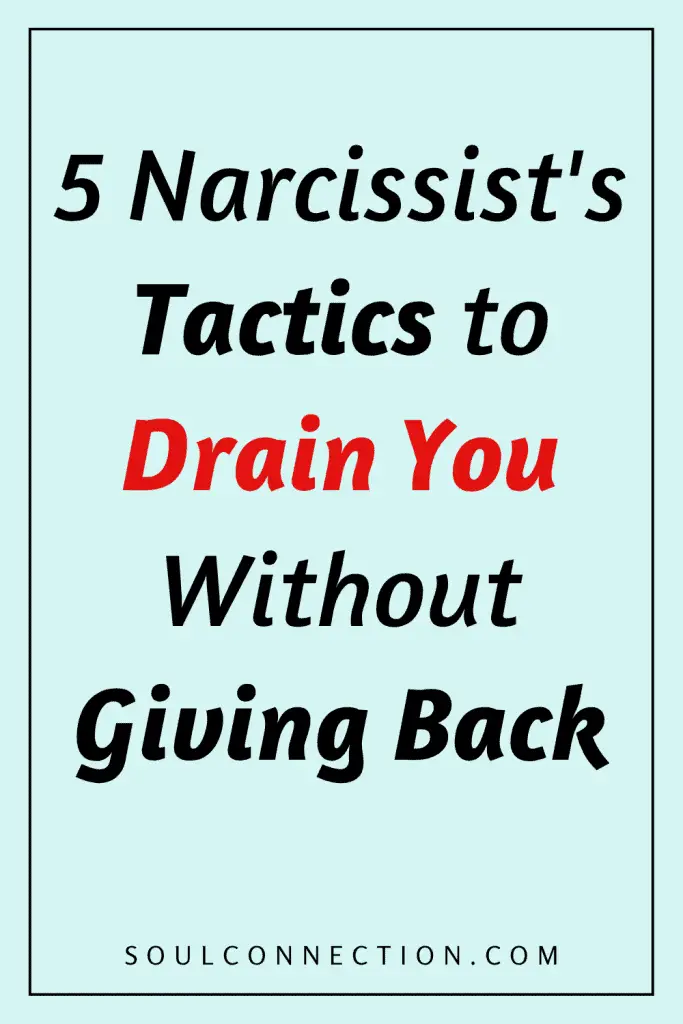Ever felt like your relationship is a one-way street lined with vampire bats and empty petrol tanks?
If so, you might have a narcissist on your hands—those charming folks who can turn any room into an echo chamber for their own greatness, while your needs are stuck in the broom cupboard.
Narcissists have a toolbox of tricks for keeping the spotlight (and all the energy, patience, and goodwill in the vicinity) firmly on themselves. Spotting these tactics is step one; learning how to dodge them is step two.
Ready to spot the drain? Let’s get into it.
1. Emotional Vending Machine Treatment
Pop in your coin (love, attention, compliments), pray for a decent snack (maybe some affection or support), and watch as the narcissist’s machine whirs, clicks, and—surprise!—returns absolutely nothing, except maybe a gentle rattle or a “try again later” light.
Narcissists view relationships as a source of endless supply, not as a two-way street.
Need a listening ear after a tough day? Expect a blank stare, a yawn, or—worse yet—a rapid pivot to their own minor inconvenience that, naturally, eclipses your existential crisis.
How to handle it? Start by setting clear boundaries around your emotional resources. If you notice all your check-ins are met with monologues or emotionally constipated grunts, pull back on the emotional investment.
Practice answering their drama with gentle neutrality: “That sounds tough,” and save your deeper empathy for those who reciprocate.
No one gets unlimited withdrawals from your ATM of kindness, especially someone who never makes a deposit.
2. Guilt Trips With Frequent Flyer Miles
No one does guilt quite like a narcissist. Got plans with friends? That’s suddenly a personal attack. Need five minutes of peace and quiet? Clearly, you’re selfish and have abandoned them emotionally.
Their ability to twist the simplest boundaries into catastrophic betrayals earns them gold-plated medals in the guilt Olympics.
This tactic works because you’re a decent person (well done, you!) and you don’t want to hurt anyone, least of all someone you care about.
Trouble is, narcissists weaponize this empathy, making it easier for them to siphon off your time, energy, and attention, leaving you frazzled and resentful.
Notice the pattern: do you find yourself apologizing for having basic needs or plans? That’s the guilt trip express pulling into your station. Next time, respond with calm clarity. “I need this time for myself” is a complete sentence.
No apology required, no justifying necessary. If they spiral into melodrama, let them have their performance—offstage, without your participation.
3. The Subtle (and Not-So-Subtle) One-Upmanship
Every story you tell becomes the launchpad for their own, inevitably more traumatic, more impressive, or more heroic tale.
Your story about running a 5k? They once ran a marathon—with one shoe, uphill, both ways, and probably while solving quantum equations. You mention a headache? They’re battling a brain tumor (in spirit, if not in MRI results).
This relentless scoring competition leaves you feeling invisible, irrelevant, and—well—exhausted. Why share your experience if it’s just another chance for them to leapfrog over you?
If you’re caught in a conversation with a chronic one-upper, resist the urge to compete. Validate your own experience internally, and gently redirect: “That’s interesting. I’d like to finish what I was saying.”
You may need to repeat yourself, and they might bulldoze ahead anyway, but at least you’re marking your conversational turf.
4. The Houdini Act When You Need Them Most
Need actual support? Suddenly, they’re busier than a barista during Monday morning rush. Texts go unanswered, calls go to voicemail, and your cries for help echo into the void.
The narcissist’s knack for vanishing at the precise moment you require something from them is less magic trick and more disappearing act with your self-esteem as collateral.
Yet, when the tables turn and they require support, there’s an expectation you become their on-demand therapist, chef, and cheerleader, all rolled into one.
Manage your expectations. If you know they’ll never show up when the chips are down, stop expecting them to. Shift your focus to people who’ve proven themselves reliable.
And if you catch yourself starting to “chase” their emotional availability—pause. You deserve relationships where support flows both ways, not just when it suits someone else’s spotlight.
5. Gaslighting: The Mind-Bender’s Special
Reality feeling a bit…wobbly? Welcome to gaslighting, the narcissist’s pièce de résistance. Gaslighting isn’t just lying—it’s rewriting the past, denying your feelings, and planting doubts about your own sanity.
You’ll catch phrases like, “That never happened,” or “You’re too sensitive,” or the classic, “Everyone agrees with me.”
The result? Second-guessing your perceptions, questioning your reactions, and a growing sense that perhaps you are the problem (spoiler: you’re not).
Anchor yourself in your own reality. Keep notes, texts, or a journal if necessary. Confide in a trusted friend who can reality-check with you. Most importantly, trust your gut.
If something feels off, it probably is. Protecting your own sense of reality is your number one shield against this draining mind game.
The Power of Saying No and Keeping Your Shine
Dealing with narcissistic tactics isn’t about outwitting or fixing the other person; it’s about fortifying your own boundaries and self-worth. Give yourself permission to say no, to step back, and to protect your time and heart.
Whether the narcissist is a partner, friend, or long-lost cousin who only calls when they need a kidney, you’re not obligated to keep giving when you’re running on empty.
Your emotional resources are precious.
Spend them wisely, with people who give as much as they take. And never let anyone convince you that taking care of yourself is selfish—sometimes, it’s just good old-fashioned common sense.
Here’s to keeping your shine, no matter how many energy vampires come knocking.


